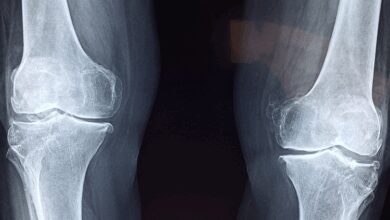Understand better rest through mindful practices now

Ever feel like you’re running on fumes, even after a full night in bed? You’re not alone. So many of us struggle with sleep, and it’s not just about how long we sleep, but the quality of that sleep. It’s easy to dismiss a bad night as just one of those things, but consistently poor sleep impacts everything – your mood, your energy, your health, even your ability to focus. But what if I told you there’s a lot more to sleep than just counting sheep? This article dives into the fascinating science of sleep, exploring what happens when we slumber and, more importantly, how you can harness that knowledge for truly restful nights. We’ll look at sleep stages, the role of hormones, and practical, mindful practices you can start tonight to improve your sleep. Forget complicated sleep studies – we’re breaking it down into simple, actionable steps.
Key Takeaways
- Sleep isn’t just downtime; it’s a vital process for physical and mental restoration.
- Understanding your sleep cycles (REM and non-REM) can help you optimize your sleep schedule.
- Hormones like melatonin and cortisol play a crucial role in regulating sleep-wake patterns.
- Mindful practices like meditation and deep breathing can calm the nervous system and promote sleep.
- Creating a relaxing bedtime routine and optimizing your sleep environment are essential for better sleep.
- Addressing sleep disorders like insomnia often requires professional help, but lifestyle changes can make a difference.
- Prioritizing sleep is an investment in your overall health and well-being.
What Exactly Is the Science of Sleep?
The science of sleep is a surprisingly complex field. For years, sleep was seen as a passive activity – simply “switching off.” Now, we know it’s a dynamic process involving intricate brain activity and hormonal shifts. It’s during sleep that our bodies repair tissues, consolidate memories, and regulate essential functions. Think of it like your brain and body’s nightly maintenance crew, working hard while you rest. This maintenance is crucial for everything from immune function to cognitive performance. Without enough quality sleep, that crew can’t do its job effectively, leading to a whole host of problems.
The Stages of Sleep: A Nightly Journey
Sleep isn’t a uniform state. It unfolds in distinct stages, cycling throughout the night. These stages are broadly categorized into two main types: REM (Rapid Eye Movement) sleep and non-REM sleep. Non-REM sleep has three stages, progressing from light sleep to deep, restorative sleep. Deep sleep is where the real magic happens – tissue repair, muscle growth, and immune system strengthening. REM sleep, on the other hand, is when most dreaming occurs and is vital for learning and memory consolidation. A typical night involves several cycles of these stages, each lasting around 90-120 minutes. Understanding these sleep cycles can help you figure out how much sleep you need to feel truly rested.
The Hormonal Symphony of Sleep
Hormones are key players in the science of sleep. Melatonin, often called the “sleep hormone,” is produced by the pineal gland and signals to your body that it’s time to sleep. Its production is influenced by light exposure – darkness triggers release, while light suppresses it. Cortisol, the “stress hormone,” follows an opposite pattern. It’s typically low at night, allowing you to sleep, and rises in the morning to promote alertness. Disruptions to these hormonal rhythms, often caused by irregular sleep schedules or stress, can lead to sleep problems. Maintaining a consistent sleep-wake cycle helps regulate these hormones and improve sleep quality.
Mindful Practices for Restful Nights
Now for the good stuff – what can you do to improve your sleep? Mindful practices can be incredibly effective in calming the nervous system and preparing your body for sleep. Simple techniques like meditation, deep breathing exercises, and progressive muscle relaxation can reduce stress and anxiety, making it easier to fall asleep and stay asleep. Even a few minutes of mindful breathing before bed can make a noticeable difference. Consider trying a guided meditation app specifically designed for sleep – there are many excellent options available. These practices help shift your brain from a state of “doing” to a state of “being,” promoting relaxation and tranquility.
Creating a Sleep-Conducive Environment
Your bedroom should be a sanctuary for sleep. This means creating an environment that’s dark, quiet, and cool. Darkness is crucial for melatonin production, so invest in blackout curtains or an eye mask. Noise can be disruptive, so consider using earplugs or a white noise machine. A cooler temperature (around 65 degrees Fahrenheit) is generally ideal for sleep. Also, think about your bedding – a comfortable mattress and pillows are essential. Decluttering your bedroom can also promote a sense of calm and relaxation. A peaceful environment signals to your brain that it’s time to rest.
The Power of a Bedtime Routine
A consistent bedtime routine is a powerful tool for signaling to your body that sleep is approaching. This could include taking a warm bath, reading a book (a physical book, not on a screen!), listening to calming music, or journaling. Avoid stimulating activities like watching TV or using your phone in the hour before bed. The blue light emitted from screens can suppress melatonin production, making it harder to fall asleep. A relaxing routine helps wind down your mind and body, preparing you for a restful night.
Sleep and Diet: What You Eat Matters
What you eat and drink can significantly impact your sleep. Avoid caffeine and alcohol close to bedtime, as they can disrupt sleep patterns. Heavy meals before bed can also interfere with sleep, so opt for a light snack if you’re hungry. Certain foods, like those containing tryptophan (turkey, nuts, seeds), may promote sleep, but the effect is often subtle. Staying hydrated throughout the day is important, but avoid drinking too much fluid before bed to minimize nighttime bathroom trips.
Addressing Common Sleep Disorders
Sometimes, despite your best efforts, sleep problems persist. This could be a sign of a sleep disorder, such as insomnia, sleep apnea, or restless legs syndrome. Insomnia, characterized by difficulty falling asleep or staying asleep, is one of the most common sleep disorders. Sleep apnea involves pauses in breathing during sleep, which can lead to daytime fatigue. Restless legs syndrome causes an irresistible urge to move your legs, often disrupting sleep. If you suspect you have a sleep disorder, it’s important to consult a doctor for diagnosis and treatment. Cognitive Behavioral Therapy for Insomnia (CBT-I) is a highly effective treatment option.
The Impact of Stress on Sleep Quality
Stress and sleep have a complicated relationship. Stress can make it difficult to fall asleep, and lack of sleep can exacerbate stress. Chronic stress can lead to long-term sleep problems. Managing stress through techniques like exercise, yoga, or mindfulness can significantly improve sleep quality. Learning to identify and address your stressors is crucial for breaking the cycle of stress and sleeplessness. Prioritizing self-care and setting healthy boundaries can also help reduce stress levels.
The Benefits of Prioritizing Sleep
Prioritizing sleep isn’t selfish; it’s essential for your overall health and well-being. Adequate sleep improves mood, boosts cognitive function, strengthens the immune system, and reduces the risk of chronic diseases. When you’re well-rested, you’re more productive, creative, and resilient. Think of sleep as an investment in yourself – a small sacrifice that yields significant returns.
Sleep and Technology: A Double-Edged Sword
Technology can be both a help and a hindrance when it comes to sleep. While sleep tracking apps can provide insights into your sleep patterns, excessive screen time can disrupt sleep. Blue light filters and “night mode” settings can help mitigate the effects of blue light, but it’s still best to avoid screens before bed. Consider using a traditional alarm clock instead of your phone to avoid the temptation to check emails or social media.
The Role of Exercise in Better Sleep
Regular exercise can improve sleep quality, but timing is key. Avoid vigorous exercise close to bedtime, as it can be stimulating. Aim to finish your workout at least a few hours before you go to bed. Exercise helps regulate your body’s natural sleep-wake cycle and reduces stress levels. Even a moderate amount of physical activity can make a difference.
Understanding Circadian Rhythms and Jet Lag
Your body operates on an internal clock called the circadian rhythm, which regulates sleep-wake cycles. Disruptions to this rhythm, such as those caused by jet lag or shift work, can lead to sleep problems. To minimize jet lag, gradually adjust your sleep schedule in the days leading up to your trip. Exposure to sunlight at the appropriate times can also help reset your circadian rhythm.
The Future of Sleep Research
The science of sleep is constantly evolving. Researchers are continuing to unravel the mysteries of sleep, exploring new treatments for sleep disorders and developing innovative technologies to improve sleep quality. From personalized sleep recommendations to brain stimulation techniques, the future of sleep research holds exciting possibilities.
FAQs
Q: How much sleep do I actually need?
A: Most adults need 7-9 hours of sleep per night. However, individual needs vary. Pay attention to how you feel – if you’re consistently tired during the day, you likely need more sleep.
Q: Is it okay to nap during the day?
A: Short naps (20-30 minutes) can be beneficial, but avoid long naps, especially in the late afternoon, as they can interfere with nighttime sleep.
Q: What if I can’t fall asleep after 20 minutes?
A: Get out of bed and do a relaxing activity, such as reading or listening to calming music, until you feel sleepy. Then, return to bed.
Q: Can meditation really help with sleep?
A: Absolutely! Meditation helps calm the mind and reduce stress, making it easier to fall asleep and stay asleep.
Q: When should I see a doctor about my sleep problems?
A: If you’ve tried lifestyle changes and are still struggling with sleep, or if you suspect you have a sleep disorder, it’s time to consult a doctor.
We hope this exploration into the science of sleep has empowered you to take control of your rest. Remember, prioritizing sleep is an act of self-care. Start small, be consistent, and listen to your body. Sweet dreams! Feel free to share your own sleep tips or questions in the comments below – we’d love to hear from you!
Hi, I’m Sophia! Welcome to my blog Try Stress Management (trystressmanagement.com), where I share simple, down-to-earth ways to handle stress and bring more calm into everyday life. Think of me as your friendly guide, offering practical tips, reflections, and little reminders that we’re all figuring this out together.
When I’m not blogging, you’ll usually find me with a good book, sipping tea, or exploring new walking trails. I believe small changes can make a big difference—and that a calmer, happier life is possible for everyone.




